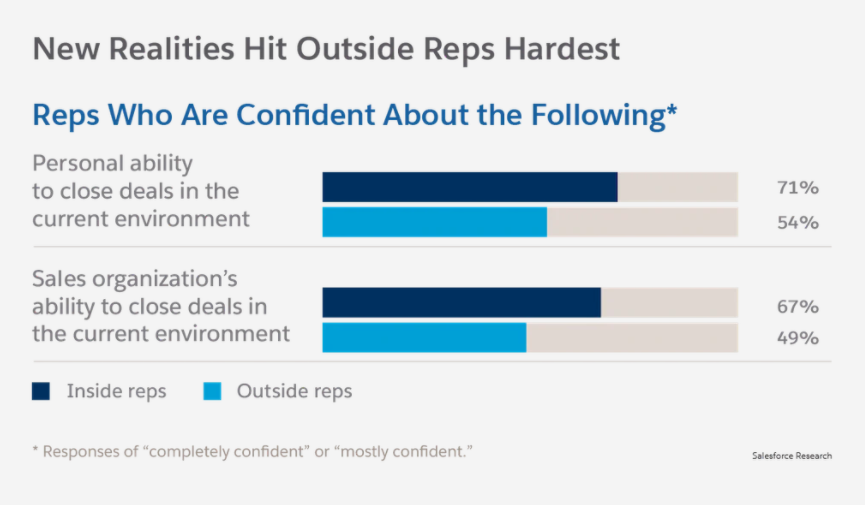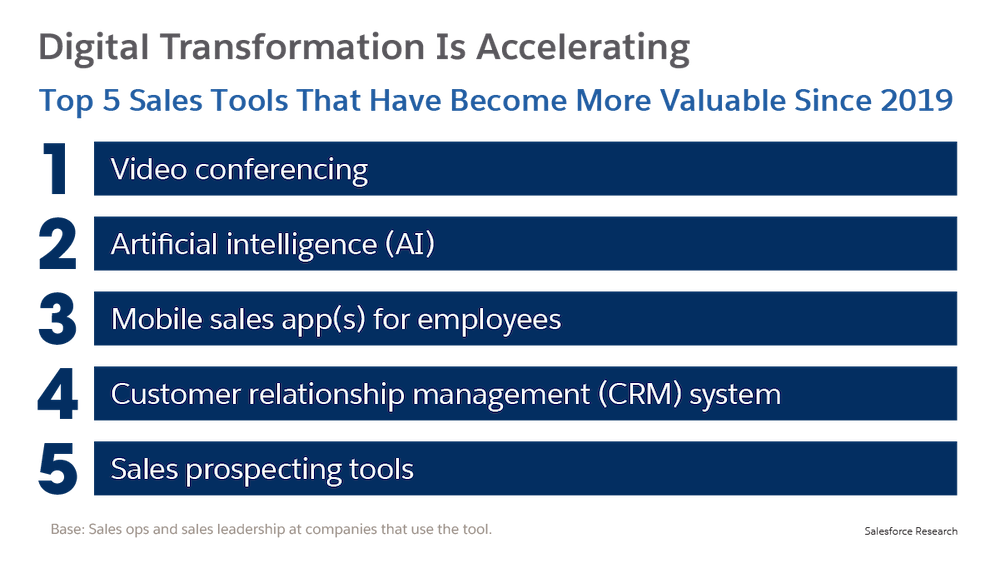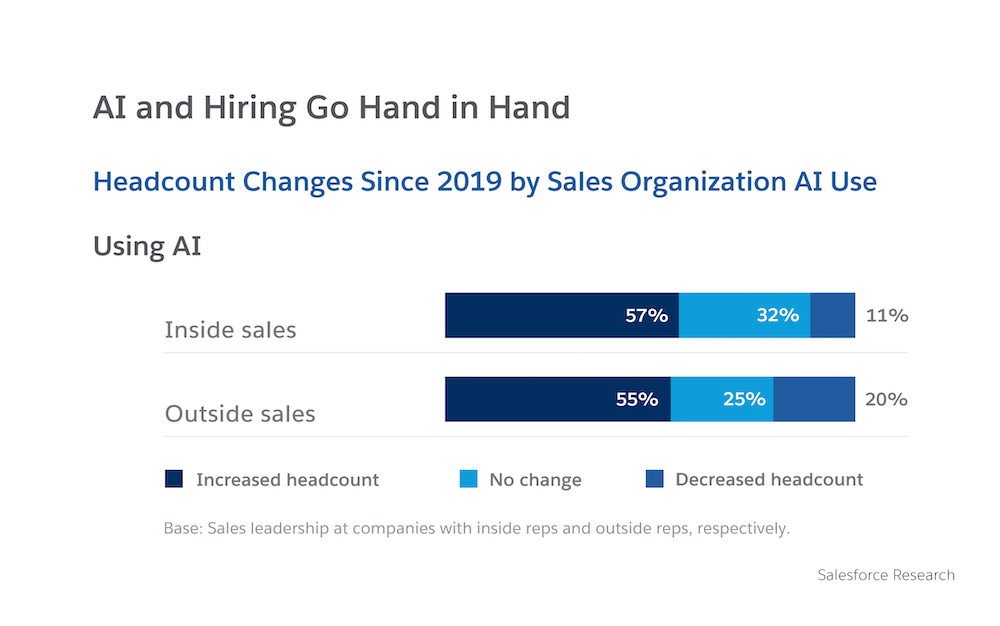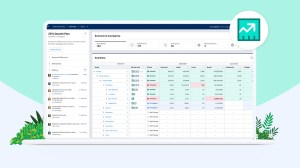The Fourth State of Sales Report Shows How Teams Adapt to a New Selling Landscape
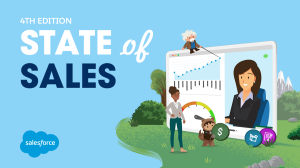



Salesforce Newsroom
Today, Salesforce published the fourth edition of its State of Sales research report, a data-driven look at how sales teams are adapting to the drastic impacts of COVID-19 and the strategies and tactics they’re implementing to recover and grow.
Salesforce surveyed nearly 6,000 sales professionals globally from B2B and B2B2C companies across North America, Asia Pacific, Europe, the Middle East, and Africa. The report showcases how a global pandemic underscores the urgency for technological and organizational transformation.
Some key insights from the State of Sales report include:
Customer and market trends are redefining the sales profession
COVID-19 has shaken up customers’ circumstances with unprecedented scale and speed. As a result, 72% of sales reps say success metrics have changed, and 58% of sales reps expect their roles to change permanently.
New realities hit outside reps the hardest
Selling during a public health and economic crisis isn’t easy for anyone, but it’s hitting field sales reps the hardest. Outside sales teams, typically reliant on in-person meetings, are now learning how to sell from home via call or video. Outside sales reps are less confident than their inside sales counterparts in their personal ability and their organization’s ability to close deals. Outside sales reps are also less likely to feel like their manager understands their day-to-day challenges, compared to inside sales reps.
Organizations are seeking a balance of process and autonomy
Because sales teams are working remotely, there’s a greater need to share progress and updates through formal reporting mechanisms. 67% of salespeople say activity logging is enforced more than in 2019, and 63% of reps are logging more details than they did in 2019.
Digital transformation is accelerating
Seventy-seven percent of sales leaders say their digital transformation has accelerated since 2019. Video conferencing leads the roster of increasingly valuable sales tools — something that will come as no surprise in the midst of a pandemic. AI mobile sales apps, and CRM systems have also earned more prominent roles in sales toolkits – as sales operations seek to provide teams with both on-the-go and data-driven tools to do their jobs. Overall, 81% of respondents say sales technology needs have changed significantly since last year, and that they’re implementing changes faster than in 2019.
AI adoption is surging
AI adoption by sales teams has jumped by 76% since 2018 (from 21% to 37%). Salespeople consider AI’s most significant impact to be improved understanding of customer needs — which speaks to the speed of change and importance of insight into customers’ evolving situations. Notably, AI isn’t displacing human talent in sales. Sales organizations that are using AI are more likely to be increasing headcount than organizations that are not using AI.
Re-skilling has emerged as the primary workforce strategy
Sales leaders are reassessing their organization’s needs, and 63% of sales professionals are confident in their organization’s ability to trail and reskill reps. 70% of organizations are now retraining their field reps to sell from home.
Flexibility will be a key tactic for customer success
Flexibility and data are going to be the way forward for many sales organizations. First and foremost, sales leaders plan to offer increased flexibility with customers, loosening strict deal terms as customers are buying more cautiously. Improved data quality and accessibility, as well as simplified sales processes, round out the top three ranked tactics, respectively, though the report details how these tactics differ across industries
For a deeper analysis of findings, download the full State of Sales report. Learn more about our latest innovations in virtual selling here.
Methodology
Data in this report is from a double-blind survey conducted from May 13, 2020 through June 30, 2020 that generated 5,951 responses from full-time sales professionals, including
sales operations, sales representatives, and sales leadership. Respondents include sellers from B2B and B2B2C companies across North America, Asia Pacific, Europe, the Middle East, and Africa. All respondents are third-party panelists (not limited to Salesforce customers). Due to rounding, not all percentage totals in this report equal 100%. All comparison calculations are made from total numbers (not rounded numbers).
